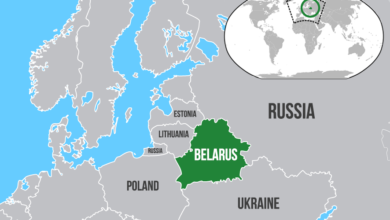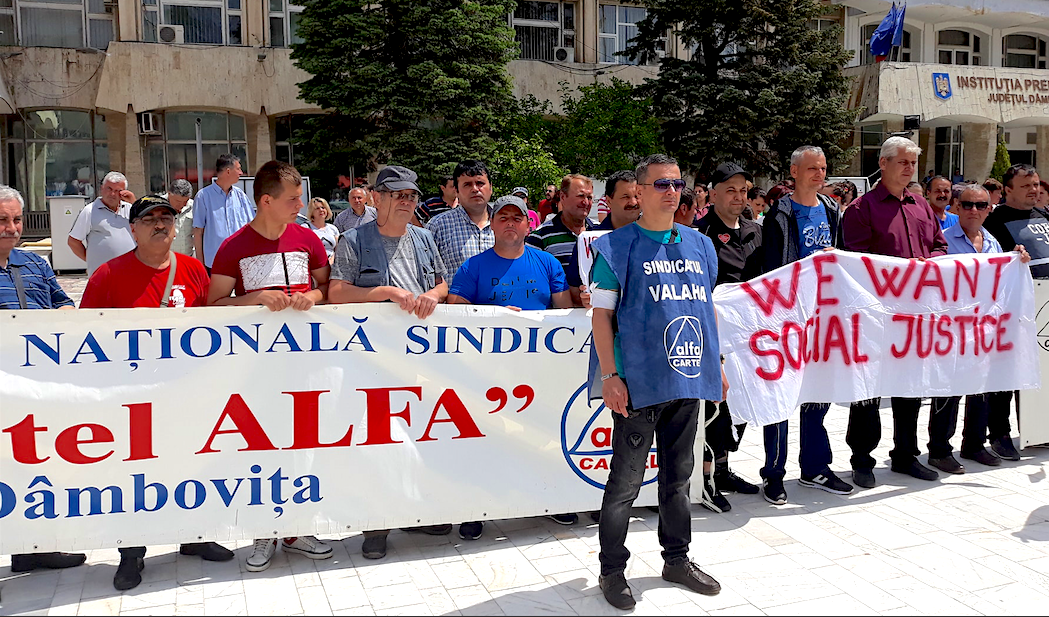This article was written before the
installation of “technocrat” Mario Monti as prime minister
replacing Silvio Berlusconi in Italy.
Former European Central Bank Vice
President Lucas Papademos became the new prime minister of Greece
Nov. 11, replacing the hated George Papandreou, who led the
government for the last two years. Papademos’s ascent to power marks
a new, more intense level of political crisis for the Greek and
European capitalist class.
After the current economic crisis
began, it soon became clear that the Greek government could not
sustain the high level of public debt it held—which had hovered
around 100 percent of gross domestic product for decades. Government
revenues fell sharply as a result of the crisis, and the debt-to-GDP
ratio eventually soared to around 160
percent. Interest payments became unbearable.
Bourgeois news outlets and politicians
have callously attempted to blame the people of Greece for the debt
crisis, slandering them as lazy and irresponsible. However, the guilt
lies solely with the capitalist class and the profit system over
which it rules.
The Greek working class had no hand in
this crisis.
Other opponents of working people have
pointed to the social services and pension benefits won over years of
determined struggle as the cause of the unsustainable debt. This
arrogant position ignores the fact that the vast majority of Greece’s
wealth has been appropriated by the capitalist class, while it was
the workers who produced it in the first place. Furthermore, massive
tax evasion among the wealthy deprived social programs of desperately
needed funds.
Workers deserve to live a dignified
life with guaranteed social and economic rights.
However, Greek capitalists and their
politicians have attempted to shift the full burden of the crisis
onto the working class by imposing draconian austerity measures.
These include but are not limited to wage reductions, budget cuts,
layoffs and privatizations that are ostensibly aimed at reducing the
national debt. As a result, Greek workers have seen their living
standards rapidly deteriorate while the official unemployment rate
has shot up to 18.4 percent.
The politician most associated with
austerity is former Prime Minister Papandreou, who came into office
in October 2009. Papandreou is the leader of PASOK, a social
democratic party that claims to represent the interests of the
working class but betrays them once in power—similar to the
Democratic Party in the United States.
The Papandreou government facilitated a
huge increase in foreign interference in Greek affairs, which some
have gone so far as to call a new occupation—a reference to the
occupation of Greece by fascist armies in World War II. Greece, along
with 16 other European countries, is a member of the Eurozone,
meaning that its official currency is the euro. The European Central
Bank is the institution tasked with maintaining the stability of the
common currency.
To be a member of the Eurozone, a
country has to meet a number of requirements relating to fiscal
policy, which Greece was and is clearly violating. As a result, the
ECB has placed intense political pressure on the Greek government.
The Eurozone is a subset of the
European Union, a political entity loosely linking 27 countries in
Europe. Its legitimacy and efforts at further integration are bound
up with the success of the euro, and so its leaders have also
attempted to direct Greek policy.
Finally, the International Monetary
Fund is an institution set up after World War II to maintain global
economic stability. Instead of achieving this stated goal, an
impossible task under capitalism, the IMF functions as a mechanism to
impose “structural adjustment programs” on indebted countries
that invariably involve austerity for the masses.
The EU, ECB and IMF are collectively
referred to as “the troika.” They have lent massive sums of money
to the Greek government to keep the Eurozone from falling into
economic catastrophe. In return, they—with the full cooperation of
the Greek bourgeoisie—have imposed conditions that strip Greece of
its national sovereignty and mandate extreme austerity measures.
The working class fights back
The Greek working class, with a long
history of militant and revolutionary struggle, has fiercely resisted
the capitalist assaults on their rights and living standards. Massive
demonstrations are commonplace, as are occupations of workplaces and
government buildings.
Greece’s bailout money is distributed
in multiple installments, each contingent on the country adopting
even more austerity to meet debt reduction targets—enforced by debt
inspectors from the troika. Nationwide general strikes are frequently
called prior to parliamentary votes on implementing these measures
and attract massive participation despite police repression and
violence by agents provocateurs. In October alone, labor brought the
country to a standstill on Oct. 5, 19 and 20.
The three main organizations of the
labor movement are the GSEE private-sector workers’ union, the ADEDY
public-sector union, and the All Workers Militant Front (PAME), the
labor affiliate of the Communist Party of Greece (KKE). While all
three generally agree on dates for general strikes, PAME pushes the
two more conservative labor federations to wage the struggle more
aggressively.
Alongside the militant labor movement,
an “indignant citizens movement,” often referred to as the
indignados, emerged from May through August. The indignados occupied
public squares across Greece, using tactics that would later be
replicated by the Occupy Wall Street movement. Although their lack of
organization and clear political direction led to some friction with
the more disciplined labor and communist movements, the indignant
citizens exposed the depth of public anger and the capitalist state’s
crisis of legitimacy.
The KKE plays a leading role in the
peoples’ resistance to the troika and Greek bourgeoisie. As a party
with deep historical roots among the working class, its disciplined
organization and revolutionary politics propel the mass movement in a
militant direction.
The Communist Party received roughly 8
percent of the vote in the 2009 parliamentary elections, but recent
opinion polls show that it is now backed by almost 14 percent of the
population. The KKE is the only major party that advocates
disengagement from the EU and the overthrow of the capitalist class.
Eurozone leaders reach desperate
agreement
Initially, the basic approach of the
Eurozone leaders had been to provide just enough money to the Greek
government to prevent it from going bankrupt. This, however, did
nothing to advance a long-term solution to the debt crisis. As
Greece’s debt continued to spiral out of control, a summit of
Eurozone heads of state was held Oct. 26 to work out a permanent
solution. Needless to say, representatives of the Greek working class
were not invited.
Although they were united in their
desire to protect the profits of the big banks and corporations—and
the capitalist system itself— the European powers faced serious
contradictions. French banks had invested heavily in Greek debt and
would be hit the hardest by a Greek default. Germany, which
experienced a hyperinflation in the 1920s and now has the EU’s
strongest economy, has had to underwrite a large portion of the Greek
bailouts. The German government, understandably, is not inclined to
extend any more rescue funds. This has led to tension between French
President Sarkozy and German Chancellor Angela Merkel.
Despite this inter-imperialist
wrangling, the severity of the situation ultimately led to both sides
softening their positions. With Spain, Portugal and most importantly
Italy facing similar debt crises, the Eurozone faced complete
collapse, a prospect that spurred its political leaders into action.
The deal approved by the summit
included three major points. Most significantly, private banks now
have to accept a 50 percent loss, or “haircut,” on their Greek
bonds. Despite the fact that this write-down is advertised as
“voluntary,” it effectively means that Greece is in a state of
partial or controlled default.
In return for the haircut taken by the
banks, the Greek government has to commit to reducing its deficit
from where it currently stands at around 160 percent of GDP to 120
percent—still an astronomically high figure—by 2020. This
condemns the Greek working class to another full decade of crippling
austerity.
Second, the heads of state agreed to a
large increase in the size of the European Financial Stability
Facility, from 440 billion to 1 trillion euros. The EFSF is a
Europe-wide bailout fund, set up to infuse massive funds into
financial institutions and governments to prevent economic collapse.
Finally, private banks are required to
raise 106 billion euros in capital to protect against possible
defaults in the Eurozone. However, given the current economic
situation, banks will almost surely ask for government assistance to
do this, meaning that the working class will again foot the bill of
the capitalist crisis.
Although stock markets and the value of
the euro initially rose as a result of the deal, it simply buys the
Eurozone more time before it has to face the inevitable. Even if
Greece met the optimistic targets set by the deal, its debt would
still be unsustainably high for at least the next 10 years. It is
unlikely that even the enlarged EFSF could bail out the much larger
economies of Spain or Italy, which also face enormous debt crises. No
agreement or set of policies can address the fundamental
contradictions of capitalism.
Papandreou government collapses
Facing a potentially revolutionary
situation at home and increasing pressure from the troika, the
government of George Papandreou was forced to make a desperate
political maneuver. Five days after the Eurozone summit, he announced
his intention to hold a referendum where the new agreement would be
put to a popular vote.
In doing so, the then prime minister
tried to frame the issue as a question between total submission to
the troika or a complete economic collapse that would inevitably
follow a “no” vote. Of course, this by no means represented the
range of options available to the Greek people and simply served as a
ploy to force the working class to lend legitimacy to the Oct. 26
agreement. A statement by the KKE referred to the referendum as
“naked and open blackmail and ideological intimidation against the
people.”
The proposed referendum was also
largely rejected by the European and Greek capitalist class. Having
worked so hard to reach a compromise between competing bourgeois
interests, the Eurozone leaders summoned Papandreou to the ongoing
G20 summit in France to express their disapproval. In addition, the
Greek finance minister and Papandreou’s chief rival within PASOK,
Evangelos Venizelos, switched positions and withdrew support for the
planned vote, raising the specter of a split within the party.
Backed into a corner and facing a
confidence vote in Parliament on Nov. 5, Papandreou called off the
referendum and agreed to immediately begin negotiations to form an
all-party “national unity” government. This implicit resignation
was enough to win over enough of his own PASOK lawmakers to avoid a
humiliating vote of no confidence.
After several days of negotiations, an
agreement was reached between PASOK and the right-wing opposition
party New Democracy to form an interim government led by the
supposedly “non-political” technocrat Lucas Papademos. The
semi-fascist Popular Orthodox Rally also joined the government, and
so for the first time since the days of the 1967-74 military
dictatorship, the far-right received a cabinet position.
The KKE and the Coalition of the
Radical Left (SYRIZA) refused to participate in this government.
SYRIZA is an eclectic mix of small communist tendencies and reformist
organizations. Despite its principled position to remain outside of
the government, SYRIZA has been unable to articulate a revolutionary
political line or mobilize masses of working people because of its
contradictory makeup.
Armed with the undivided political
support of the Greek bourgeoisie, the Papademos government is tasked
with implementing even more ruthless anti-worker measures. At the top
of the new government’s agenda is approving the Oct. 26 agreement,
passing an austerity budget for 2012 and securing the next batch of
bailout money from the troika. New elections are expected in
February, giving Papademos just enough time to complete these tasks.
The struggle in
Greece continues despite the new political situation. The night
before the Papademos government was sworn into office, thousands
participated in a massive Communist Party-organized demonstration
outside the parliament building. As the utter failure of capitalism
becomes more and more apparent, the militancy and radicalism of the
Greek working class serves as an example to be emulated around the
world.





